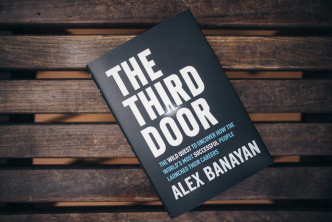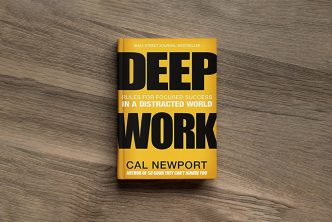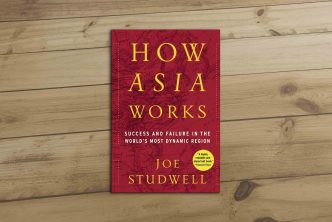REVIEW: “Range: Why Generalists Triumph in a Specialized World” by David Epstein. Macmillan Publishers. Length: 339 pages
By Uche Okoro
Rating: 4/5
Many people would agree that the secret to success in almost any activity is repetition. Many authors have theorised that to master any activity, all one ever needed to do was practise for a considerable amount of time. If you have read Malcolm Gladwell’s Outlier, the “10,000 Hour” rule comes to mind. It sounds like a straightforward solution thinking about it; to become better at something, put in the time.
In his book, Range: Why Generalists Triumph In A Specialized World, David Epstein, a former reporter, argues that specialisation applies only to a small number of skills and does not assure success. Epstein instead posits a counter-theory that rather than work on one thing for a lengthy period, what many people need is to learn more things.
Most people do not need to specialise in one thing, which Epstein argues can cause myopic thinking. Using anecdotes, he illustrates the disadvantages of specialisation in individuals and systems. Epstein notes that specialisation is quite effective in “kind environments” with established rules and certain outcomes. In complex, “wicked environments” over specialisation, he states, can be harmful. In such environments, game rules are often unclear or incomplete, and repetitive patterns are frequently lacking or inevident. Here, relying on single domain experience leads to a limited outlook that may have disastrous outcomes.
Epstein illustrates that specialisation played a contributory role in the 2008 global financial crisis. “Insurance regulators regulated insurance, bank regulators regulated banks, securities regulators regulated securities, and consumer regulators regulated consumers, but the provision of credit goes across all those markets. So, we specialised products, we specialised regulation, and the question is, ‘Who looks across those markets?’. With specialised groups optimising risk for their specific areas, no one could see the whole picture leading to overlooking systemic challenges across the sector.
As individuals amass specified information, they assume increasingly dogmatic stances, making them blind to any inadequacy in their position or thinking. Epstein uses cardiologists’ proclivity to stents to show this dogmatism and how harmful specialisation can be. He states in an anecdote that “cardiac patients are less likely to die if they are admitted during a national cardiology meeting because the absence of interventional cardiologists reduces the number of stents used, even though research has proven that they are often inappropriate or dangerous.” Specialisers, he says, are unlikely to unlearn as they view the world through a narrow lens.
Epstein states that expertise defined by experience depends entirely on the domain in question. He argues that diverse, “generalist” teams surpass highly specialised teams in these sorts of complex environments. While narrow experience makes for better chess and poker players, it does not make for better financial, political, or employee performance. With increasing ambiguity and uncertainty, the need for breadth increasingly becomes important. Such systems are often the norm, and diversity is more valuable than specialisation. Diverse professional backgrounds lead to various perspectives. Teams composed of such members will reliably produce breakthroughs under uncertain situations.
Epstein highlights successes achieved as a result of wide-ranging thinking. In 1965, Gunpei Yokoi, a graduate student, joined Nintendo as a maintenance employee. When an executive caught him fiddling with a gripping tool he had made in his spare time, he asked him to develop it into a toy. Gunpei’s ideas would become the base for Nintendo’s success in the toy industry. He would go on to play an essential role in the development of the Game Boy. His lack of engineering experience helped him resist the pull toward newer technologies that had engulfed Nintendo’s competitors; instead, he came up with innovative ideas that were way more valuable.
Appealing to a wide range of knowledge can lead to innovative solutions that specialists can not fathom. A range of knowledge provides people with different countering perspectives when faced with a challenge. This “outside-in thinking” is evidenced in InnoCentive’s birth, a company that connects entities with people who want to help solve their problems for rewards. A survey of problem-solvers on how relevant the problem they addressed was to their field of specialisation found out that “the further the problem was from the solver’s expertise, the more likely they were to solve it.” This platform emphasises the role diversity can play in providing solutions to specialised issues in a complex system.
From our educational systems to our corporate environments, specialisation and uniformity are demanded. We are programmed to think a certain way and to provide input in a specialised manner. The difficulty we all face is maintaining the advantages of breadth, diverse experience, and interdisciplinary thinking in a world that is increasingly incentivising and demanding specialisation.
Range reminds us that the need for a wide breadth of knowledge and skills is necessary not only as individuals as teams. It underscores the diverse collaboration as a hallmark of innovation, especially in an increasingly globalised world with complex challenges. Through convincing, insightful research and anecdotes, Range shows that inclusivity brings varied perspectives, experiences, and approaches to problem-solving, which undoubtedly would lead to a more collaborative, better, and innovative world.
Epstein writes with conviction on the need for personal self-development that demands stepping out of comfort zones to garner new experiences and knowledge diversifying one’s perspectives.
While there are areas that will demand highly specialised knowledge and skill, as complexity increases, so does our need for diversity; people with broad experiences and perspectives, people with Range.







